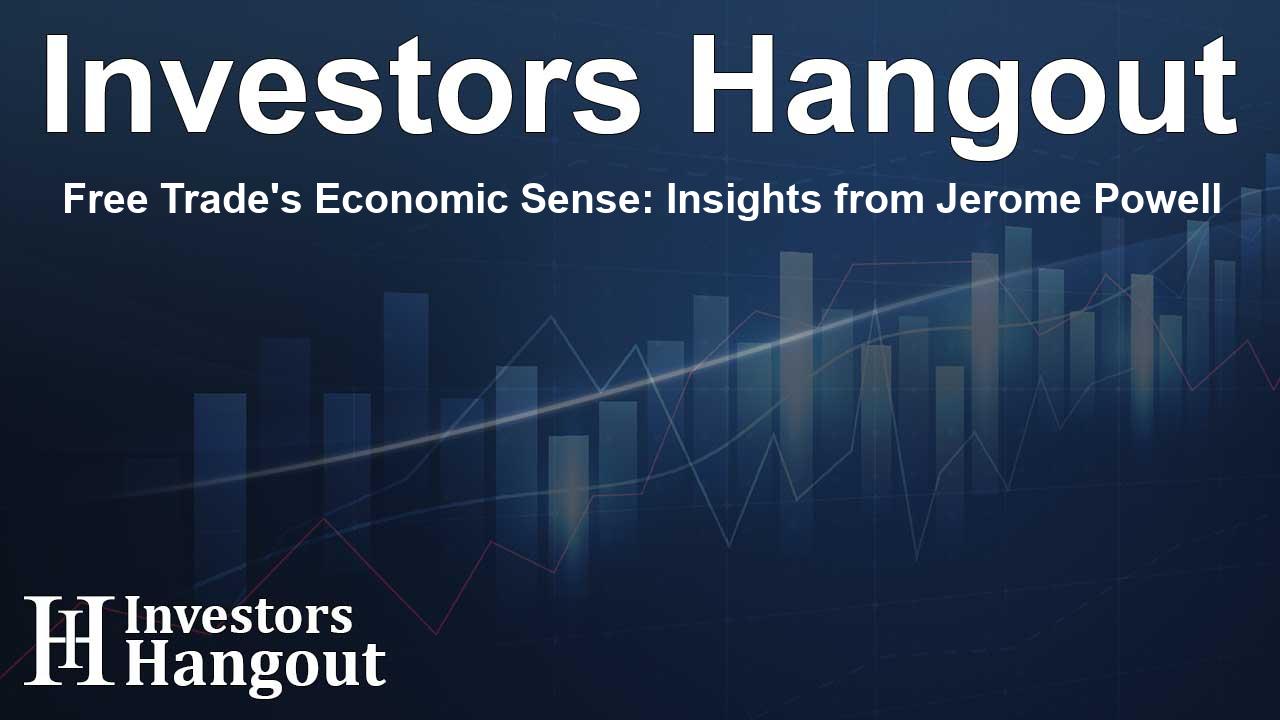Free Trade's Economic Sense: Insights from Jerome Powell

Powell's Perspective on Free Trade
Federal Reserve Chair Jerome Powell recently articulated his views on free trade before a Senate committee. He emphasized that, despite the economic repercussions of recent tariffs, the fundamental logic supporting free trade remains intact. He underlined that it is not the Federal Reserve's role to intervene in trade policies but rather to respond thoughtfully to such changes.
The Impact of Tariffs on the Economy
As the current administration deploys protective tariffs, including a hefty 25% on imports of steel and aluminum, relevant concerns about inflation and trade dynamics have emerged. Powell acknowledged the complexities these tariffs introduce, particularly as the Fed aims to align inflation rates with its target of 2%.
Corporate Reactions and Challenges
Industries heavily dependent on imported materials are already feeling the pinch. Notable companies such as Ford Motor Co (NYSE: F) and Coca-Cola Co (NYSE: KO) face increased costs directly tied to these tariff hikes. This uptick in raw material expenses carries the potential to affect pricing strategies and profit margins.
Powell's Stance on Policy Adjustments
Powell conveyed that the Fed is not in a rush to modify its monetary policies. He pointed out that a gradual approach is essential to prevent stifling economic progress, particularly regarding a healthy labor market that adds an average of 189,000 jobs each month.
A Lesson from History: The Effects of Tariff Policies
The repercussions of tariffs are not new, and history demonstrates mixed outcomes from such measures. The Smoot-Hawley Tariff Act of 1930 led to significant declines in both imports and exports, showcasing how protective tariffs can constrict market activity. Similarly, steel tariffs introduced during President George W. Bush’s tenure resulted in job losses across steel-consuming sectors despite a modest boost in domestic steel production.
Current and Future Implications
Powell's comments serve as a reminder of the broader implications tariffs have on different market segments. Analysts fear that rising import costs could contribute to inflationary pressures. This effect may discourage consumer spending and potentially lead to adjustments in corporate investment strategies.
Staying Steady Amid Economic Uncertainty
Powell's testimony reflects a balanced approach amidst the uncertainty introduced by new tariffs. He noted the Fed's readiness to adapt its strategies to mitigate risks while ensuring that economic growth is not compromised.
Looking Ahead: The Fed's Role in Trade Policy
The path forward involves a careful analysis of both macroeconomic indicators and industry responses. The Federal Reserve continues to monitor the labor market, inflation rates, and the ongoing impact of trade policies as they maintain their current stance for the foreseeable future.
Frequently Asked Questions
What did Jerome Powell say about free trade?
Jerome Powell stated that the fundamental case for free trade logically still makes sense, though the Fed's role is not to comment on trade policies.
How are tariffs affecting companies like Ford and Coca-Cola?
Ford and Coca-Cola are experiencing rising costs for imported materials due to tariffs, which may impact their profit margins and pricing strategies.
What is the Fed's strategy regarding economic policy adjustments?
The Fed is taking a cautious approach to adjusting its policies, aiming to avoid actions that could disrupt economic recovery.
What historical examples illustrate the consequences of tariffs?
Historical examples, such as the Smoot-Hawley Tariff Act, show that tariffs can lead to significant declines in trade activity and job losses in related sectors.
What are the potential future implications of current tariff policies?
Current tariffs may result in increased consumer prices and contribute to inflation, impacting overall economic growth and corporate investment decisions.
About The Author
Contact Riley Hayes privately here. Or send an email with ATTN: Riley Hayes as the subject to contact@investorshangout.com.
About Investors Hangout
Investors Hangout is a leading online stock forum for financial discussion and learning, offering a wide range of free tools and resources. It draws in traders of all levels, who exchange market knowledge, investigate trading tactics, and keep an eye on industry developments in real time. Featuring financial articles, stock message boards, quotes, charts, company profiles, and live news updates. Through cooperative learning and a wealth of informational resources, it helps users from novices creating their first portfolios to experts honing their techniques. Join Investors Hangout today: https://investorshangout.com/
The content of this article is based on factual, publicly available information and does not represent legal, financial, or investment advice. Investors Hangout does not offer financial advice, and the author is not a licensed financial advisor. Consult a qualified advisor before making any financial or investment decisions based on this article. This article should not be considered advice to purchase, sell, or hold any securities or other investments. If any of the material provided here is inaccurate, please contact us for corrections.
